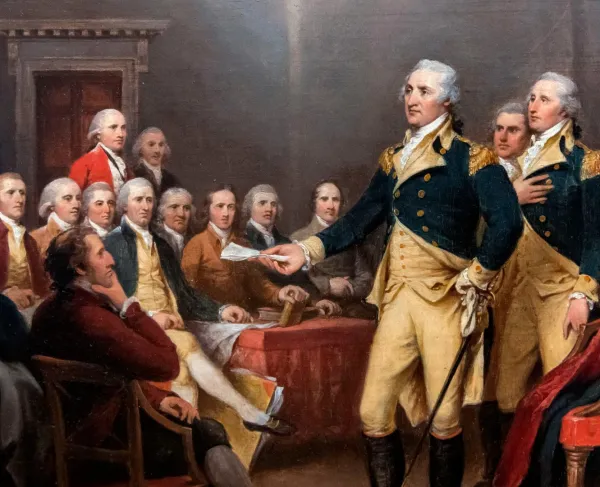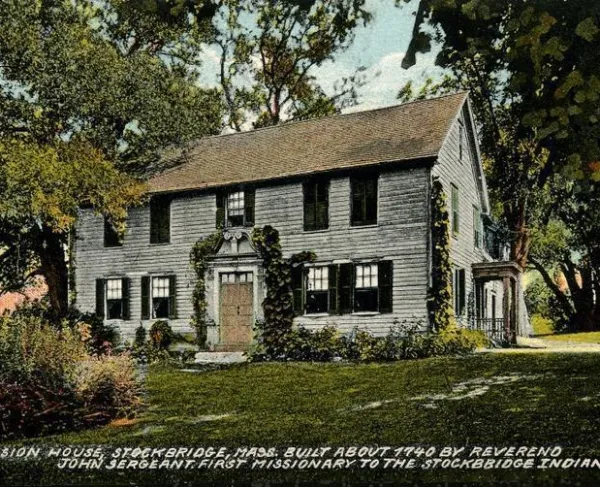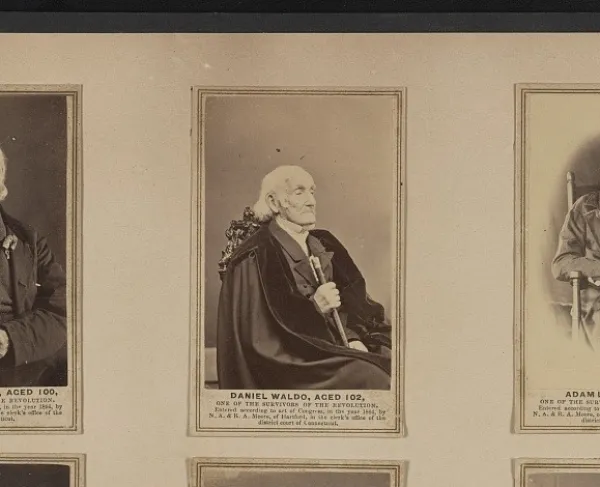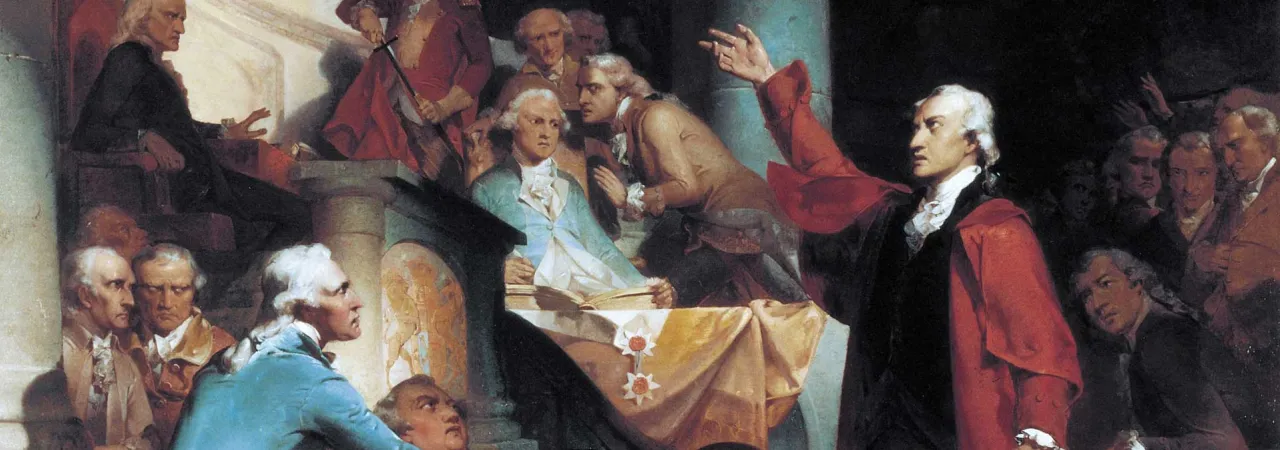
A painting of Patrick Henry's "If this be treason, make the most of it!" speech against the Stamp Act of 1765.
In the Declaration of Independence, Thomas Jefferson spelled out the rationale by which it had become necessary for the colonists to dispose of English rule, describing a “long train of abuses and usurpations” enacted upon the fledgling colonies by the British crown. This maltreatment was derived from a litany of legal measures and acts imposed by the British in the lead-up to independence.
Royal Proclamation of 1763 | October 7, 1763
Wishing to avoid conflict between settlers and Native Americans in territories gained from the French and Indian War, Britain forbid settlement west of the Appalachian Mountains. This restriction angered colonists who believed they had fought for this land in the war with France.
Sugar Act | April 5, 1764
To tackle debts incurred during the Seven Years’ War, the British government reduced the tax on sugar and molasses but strengthened collection enforcement. The royal crackdown on profitable smuggling prompted nonimportation campaigns, or boycotts, of British goods.
Currency Act | April 19, 1764
Parliament prohibited the issuance of paper currency by the colonial governments, replacing the questionably valued bills with coins issued by the British but reducing colonists’ ability to alleviate debts and pay taxes.
Stamp Act | March 22, 1765
Faced with recession, Parliament required all paper products, including legal and trade documents, playing cards, dice and newspapers, to possess a taxed stamp.
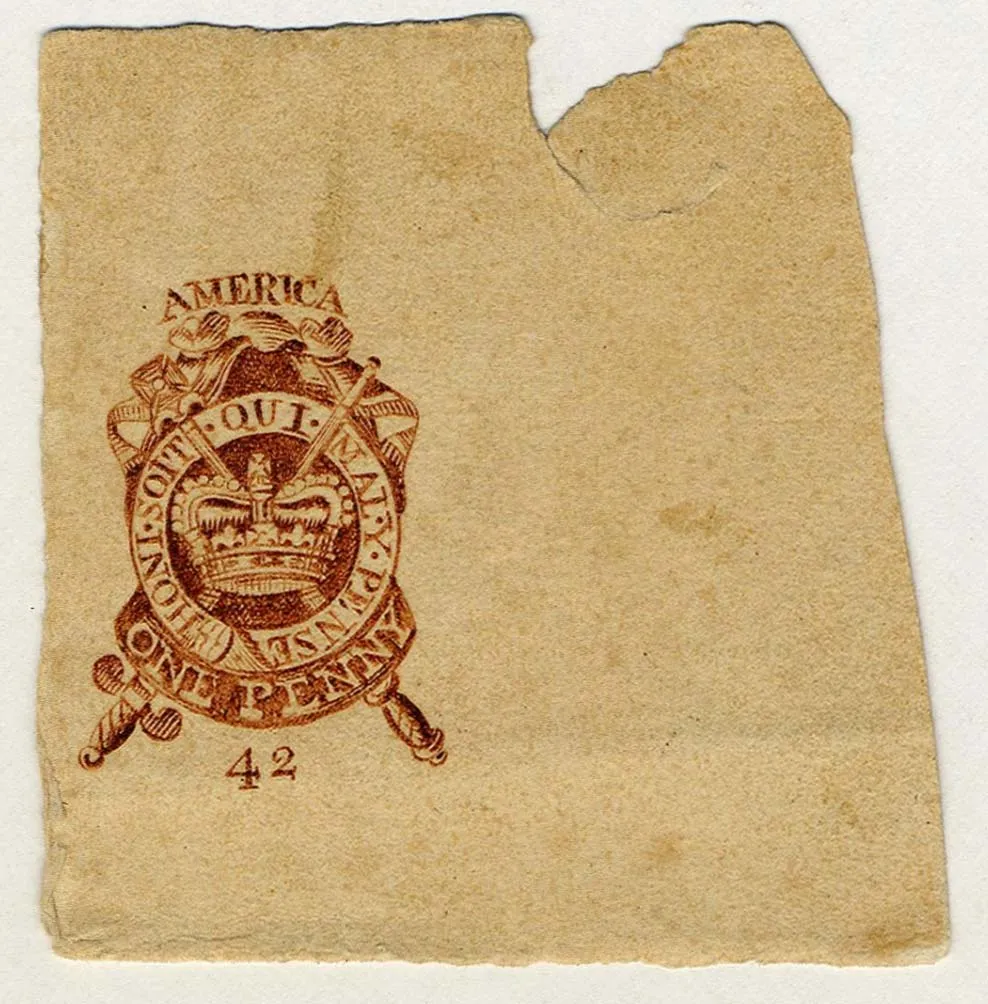
Immediately, the law was met by protests, riots, boycotts, harassment of collectors and a meeting of colonial representatives at the Stamp Act Congress in October, which denounced taxation without parliamentary representation.
Quartering Act | May 15, 1765
Acting on complaints from military leadership in North America, Parliament required colonial governments to provide public lodging and provisions for British troops.
Repeal Act/Declaratory Act | March 18, 1766
At the behest of British merchants suffering from colonial boycotts, Parliament repealed the Stamp Act while simultaneously declaring its right to “make laws and statutes” over America “in all cases whatsoever.”
Townshend Acts | June 1767 – July 1768
Consisting of the Suspending Act, Revenue Act, Indemnity Act, Commissioners of Customs Act and Vice Admiralty Court Act, the legislation championed by Chancellor of the Exchequer Charles Townshend sought to fund governance of North America, pay Britain’s war debt and punish her obstinate subjects.
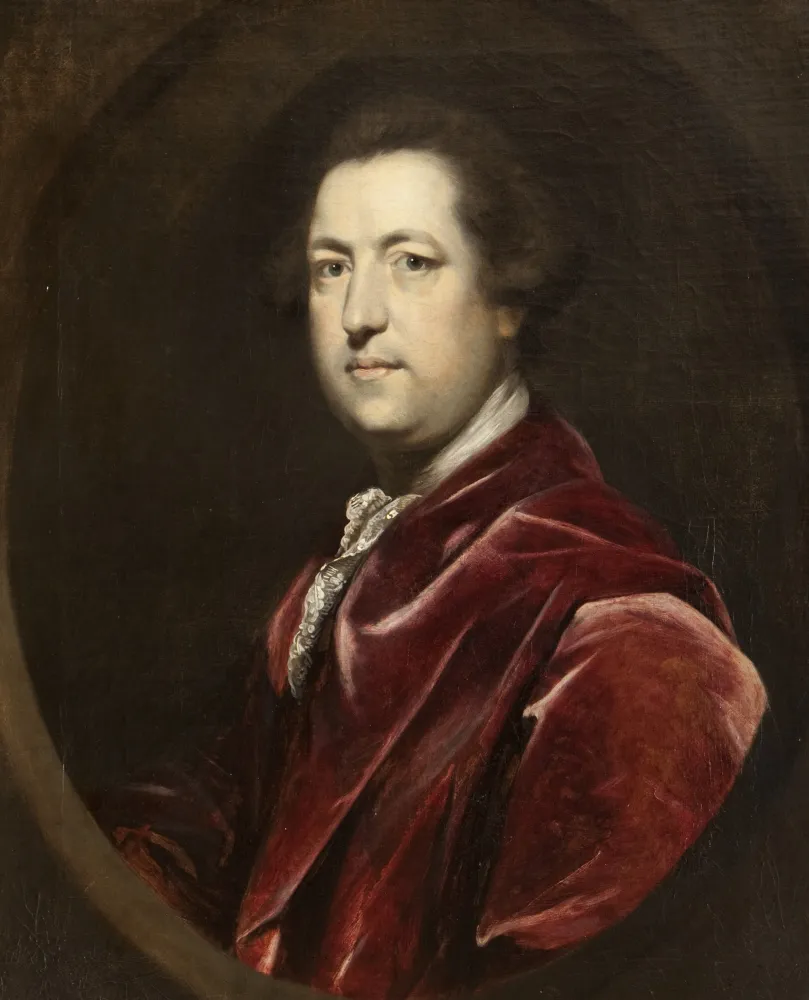
The laws increased duties on goods predominantly imported into the colonies, while streamlining collections and authorizing controversial enforcement methods such as writs of assistance and military vice admiralty courts for smugglers. Colonists responded with protests, additional nonimportation campaigns and rhetorical condemnations.
Tea Act | May 10, 1773
Seeking to reduce tensions, the British government repealed all Townshend duties except the tea tax. Parliament, however, awarded the floundering East India Company a monopoly on the tea trade, leading to large-scale protests.
Intolerable (Coercive) Acts | March – June 1774
In retaliation for the Boston Tea Party, Prime Minister Lord North urged Parliament to punish Boston. The Boston Port Act closed the city to all ocean-borne trade and the Massachusetts Government Act and Impartial Administration of Justice Act restricted local authority and judicial sovereignty.
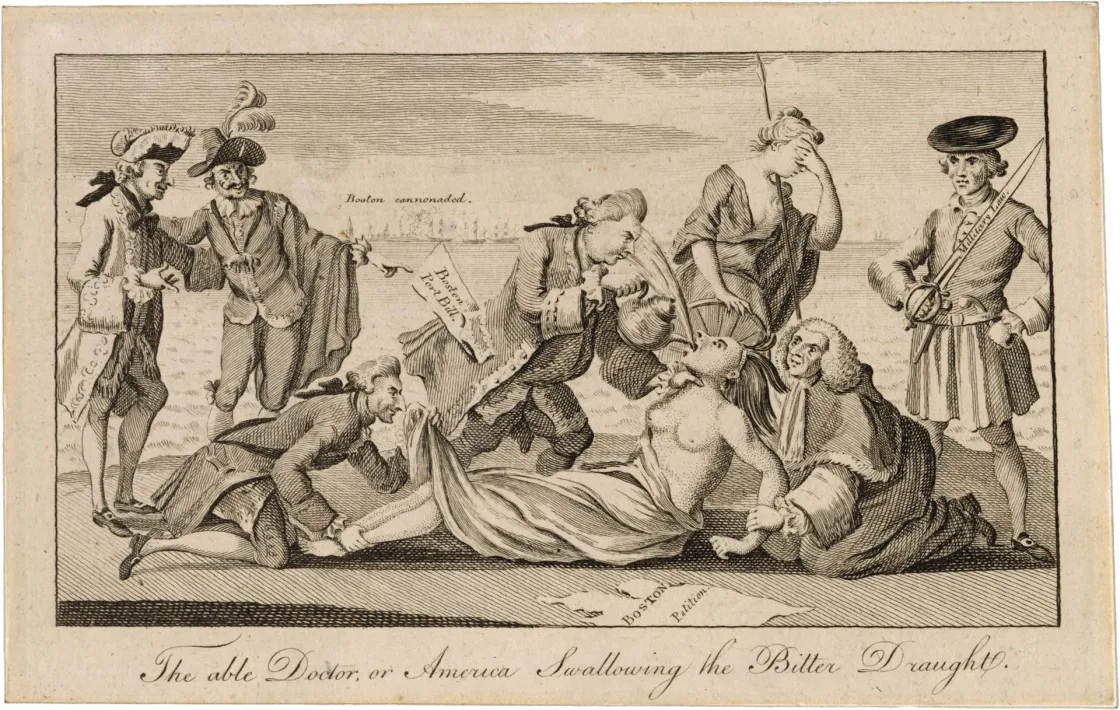
Additionally, the 1774 Quartering Act extended the previous mandate to private residences, while the Quebec Act antagonized the English colonies by granting political and religious protections to French Canadians and expanding the province’s borders. Britain’s escalating restrictions increased colonial solidarity, culminating in the first Continental Congress in fall 1774.
New England Restraining Act | March 30, 1775
Hoping to bring the defiant New England colonies into line, Parliament restricted all trade to and from New England to the British domains. In April, these were extended to all colonies except New York and North Carolina.
